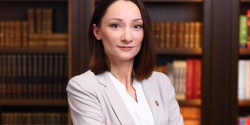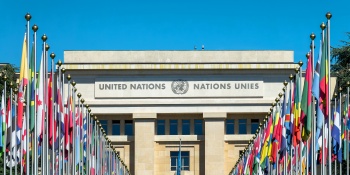Published: 13.11.2023

· A few days ago, numerous news outlets revisited the case of a seriously ill eight-month-old girl, Indi Gregory - a British citizen - against whom the Supreme Court of that country recently ruled to disconnect her life support equipment.
· The parents have not given up their fight for the child's life, and last week it was reported that the girl had been granted Italian citizenship and the prospect of continuing treatment offered by the Vatican's Bambino Gesù hospital.
· However, a British court refused to allow the girl to be transported.
· On Sunday, she was disconnected from life support and transported to a hospice. On the night of Sunday to Monday, the child died.
Indi's case, like the previously publicised cases of other children, has legitimately aroused much emotion and opposition to the decisions of the British justice system. However, it is important to bear in mind that the information reproduced in the media about the condition of patients is very sparse and on the basis of this information it is not possible to give a clear answer to the question of how the situation should have been handled in order to fully realise the rights of the patient, including the right to die with dignity. It is also important to consider at least four aspects of such cases - legal, medical, bioethical as well as spiritual.
Parents have the right to fight
In the UK, as for example in Poland, parents have parental authority over their child. According to the UK government website, "all mothers and most fathers have parental rights and responsibilities - known as parental responsibility". When parental responsibility is exercised, parents are specifically charged with the duty to protect and maintain the child and, among other things, to make decisions about the child's medical treatment.
Recently, the media have reported on at least a few cases in which the decision on the child's further treatment was in fact made by the British courts. These rulings are all the more questionable because they are made against the wishes of the parents, who declare to undertake further treatment for their child at their own expense, or - as in the Indi case - are given the option of treatment at the expense of another country.British courts therefore not only prejudge the discontinuation of treatment (which, in the opinion of the doctors requesting such a verdict, must be right), but undoubtedly strongly interfere in the sphere of parental authority by refusing, for example, to transport the child to a hospice or home or another country. Even if there are laws in the UK allowing such a drastic intrusion into the space of 'parental responsibility' in the name - as has been put forward - of the best interests of the child, at least the question of the realisation of the right to health care remains open. In any case, however, denying parents the right to do their best for their own child is simply inhumane.In fact, this is not the first time that the British justice system has denied a child's parents the right to fight for their child's life.The cases of Alfie Evans, Charlie Gard and Archie Battersbee, for example, have received media coverage in recent years.
When medicine is helpless
From a medical point of view, the situation, Indi and other patients, including those diagnosed with diseases deemed incurable and leading to death by gradual destruction of the organism, should, in principle, be considered from the perspective of the patient's welfare and rights.
On the one hand, the patient has the right to medical care that meets certain standards, while on the other hand, the patient also has a right which, for example, in the Polish legal system is referred to as the 'right to die in peace and dignity' (Article 20(2) of the Act on Patient Rights and Patient Ombudsman). In no way can this term be equated with euthanasia, which in its essence violates human dignity, whereas the right to die in peace and dignity is a component of the broader 'right to respect for dignity'. The right to die in peace, properly understood, includes, for example, the abandonment of so-called 'persistent therapy', which does not bring any health benefit to the dying patient but can only cause additional suffering.
Bioethicists often say: I don't know...
This response cannot be seen as an expression of a lack of knowledge or bioethical reflection on the subject. For it is very often the case that there is insufficient and reliable information on the situation of a given patient, although widely reported in the media. In order to make a sound bioethical assessment of whether the doctors acted properly in a given situation - i.e. with due respect for human life and dignity - or whether they acted reprehensibly, i.e. by making a decision that strikes at these fundamental values, it is necessary to have at one's disposal the data from the medical records. This data, however, constitutes medical confidentiality. Such data is generally only available to the hospital, so that any media coverage of such cases is based on very incomplete information.
In the case of Indi Gregory, for example, it was reported in earlier media releases that the doctors demanded permission not to undertake medical interventions if the child's health deteriorated significantly. It is only in the realm of conjecture whether the subject of this request was measures such as further resuscitation or others such as nursing and pain relief. The problem for the UK health service is certainly the recognition that feeding and watering the patient is part of the treatment, making it totally unacceptable from an ethical point of view for a patient to be starved in UK hospitals.
At this point, it is worth referring to the position put forward in the Indi case by the British bishops, who responded with full understanding and acceptance to the determination of the girl's parents to make further attempts to prolong her life with hope. Despite the fact that the British court was not convinced this time either, a ray of hope can be shed by the fact that the child was allowed to pass away in a hospice, a place which, by definition, should offer every patient the necessary measures at this stage, including pain and breathlessness relief. Just a year ago, such an opportunity - as reported in the media at the time - was denied to 12-year-old Archie Battersbee.
Katarzyna Gęsiak, Director of the Centre for Medical Law and Bioethics

The Court of Appeals in Lublin, Poland, has upheld the verdict of the Regional Court in Radom, sentencing a gynecologist to one year of imprisonment, suspended for three years. The doctor must also pay PLN 6,000 to the State Treasury in legal costs.

The Ordo Iuris Institute has prepared a guide for hospitals and doctors on how to respond to the Guidelines issued by the Minister of Health and the Attorney General regarding the performance of abortions. According to these Guidelines, the health premise that permits abortion can encompass any aspect of health—both physical and mental—including any health ailment.

• Last Saturday, activists from the Abortion Dream Team opened the AboTak 'abortion clinic' near the Polish Parliament, where Polish law is now set to be openly violated.

• Ordo Iuris (OI) experts participated in informal consultations which were held before the 58th sessio